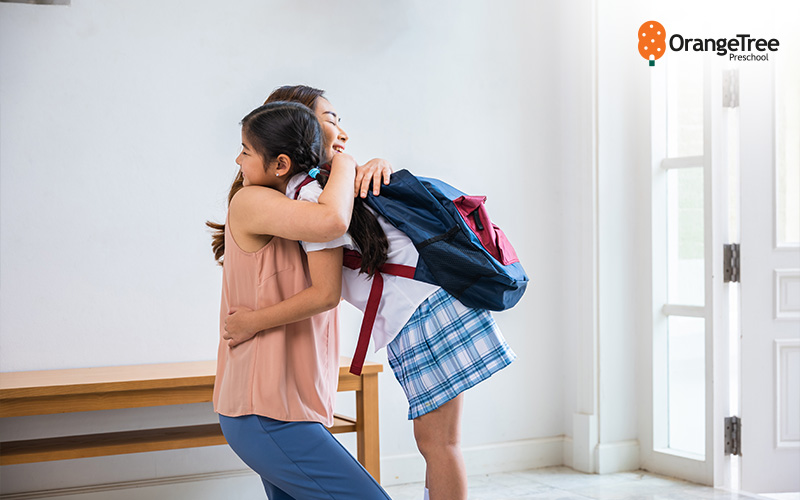
How to Tell If Your Child is Ready for Primary School
29 August 2025
Key Takeaways
- Being ready for Primary School requires your child to be independent, confident, and able to manage daily routines on top of academic knowledge.
- Developing early literacy skills, life habits, and time management skills at home can ease the transition into Primary 1.
- Social adaptability, emotional control, and adapting to rules are just as vital as reading and writing.
Starting Primary 1 marks the start of a significant chapter for both children and parents in Singapore. It brings new expectations, new surroundings, and much more structure than preschool. Many parents wonder: is my child truly ready for Primary School?
The answer depends on more than just your child’s ability to read or count. Readiness involves a mix of practical life skills, emotional maturity, and confidence in social situations. Every child develops at their own pace, but there are some common signs you can look out for. With the right habits and guidance, you can support your child’s transition and help them begin their Primary School journey on the right foot.
1. Early Literacy Skills
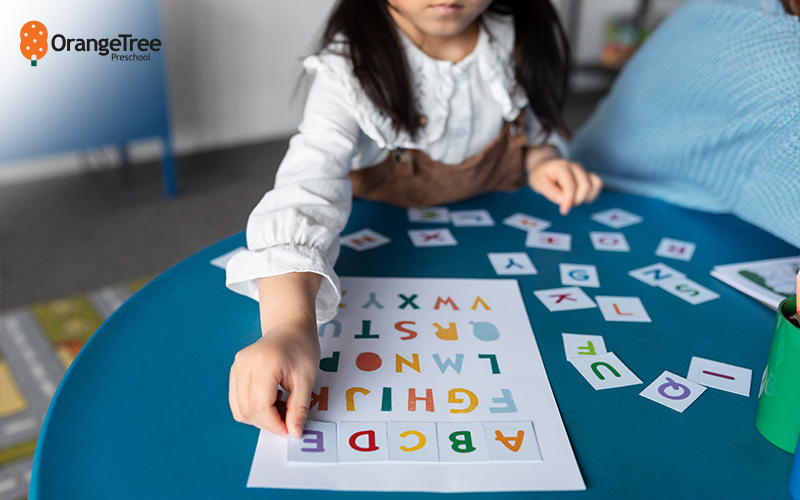
Your child does not need to be reading fluently or writing full sentences before entering Primary 1, but having some early literacy skills can certainly make things easier. These include:
- Recognising the alphabet and connecting letters to sounds.
- Reading and understanding simple words or short phrases.
- Showing interest in stories and communicating through basic sentences.
Even more important than academic ability is a child’s curiosity and willingness to learn. Reading with your child daily, playing letter games, and helping them spell familiar words (such as their own name) all lay the foundation for language development.
At Orange Tree Preschool, we nurture early literacy skills through a balanced preschool learning curriculum that encourages storytelling, phonics, and vocabulary building. This helps preschoolers build a strong literacy foundation that is ready for Primary School.
2. Independence in Daily Tasks
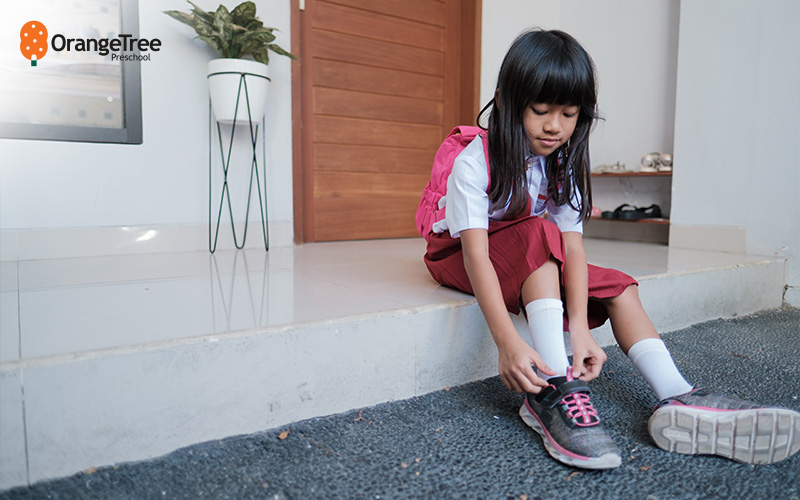
Being ready for Primary School also means managing day-to-day activities independently. At school, children will need to:
- Go to the bathroom on their own.
- Dress and undress for activities or PE lessons.
- Ask for help when needed.
Encouraging independence at home is one of the best ways to prepare your child for Primary School. Let them practise tasks like zipping jackets, packing their own bag, or organising their school shoes. These may seem simple, but they build confidence and teach your child to rely on themselves when necessary.
Our nursery preschool programme introduces these self-care habits early, helping children build independence before they enter formal schooling.
3. Handling Responsibilities
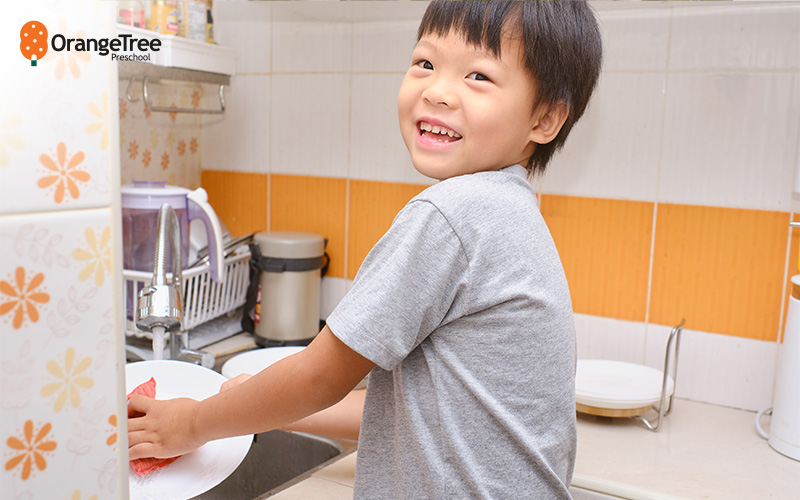
In Primary School, children are expected to manage their belongings, bring the right items to class, and handle their homework. Developing a sense of responsibility does not happen overnight, and it is perfectly normal for a few items to go missing in the early weeks.
What matters is giving your child chances to practise. Start by involving them in simple household chores, such as setting the table, tidying their toys, or choosing snacks for their lunchbox. These activities teach accountability and show children that their contributions matter.
Responsibility is a key part of our preschool curriculum, where we guide children to take ownership of their actions and routines in age-appropriate ways.
4. Adapting to Rules and Schedules
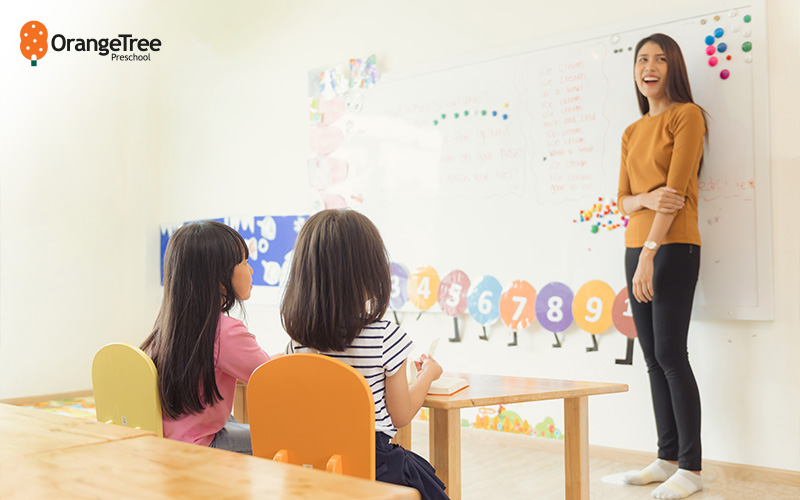
When starting Primary 1, children must follow structured routines and adapt to rules in the classroom. This includes:
- Sitting still during lessons.
- Listening to instructions.
- Transitioning from one activity to another at set times.
Some children take naturally to structured settings, while others may need time to adjust. Practising daily routines at home, like following a morning checklist or sticking to mealtimes, can make a big difference in getting them ready for Primary School. One helpful way to build time management skills is by using fun challenges. For instance, you could set a timer and encourage your child to complete dressing or packing within a set time. These activities make routine-building enjoyable whilst teaching valuable life skills.
Knowing whether your child is ready for Primary School involves looking at more than academics. Confidence in daily tasks, emotional resilience, and comfort in social settings are all important markers of readiness. With support from home and guidance through a strong preschool learning curriculum, your child can ease into Primary School more assured and in control.
Here at Orange Tree Preschool, we support families through this transition with a well-rounded preschool curriculum that focuses on holistic development. Our teachers help children build independence, strengthen early literacy skills, and learn the rhythms of school life.
To learn more about our programmes and facilities, and how we prepare preschoolers for Primary School, please schedule a tour with us today.
